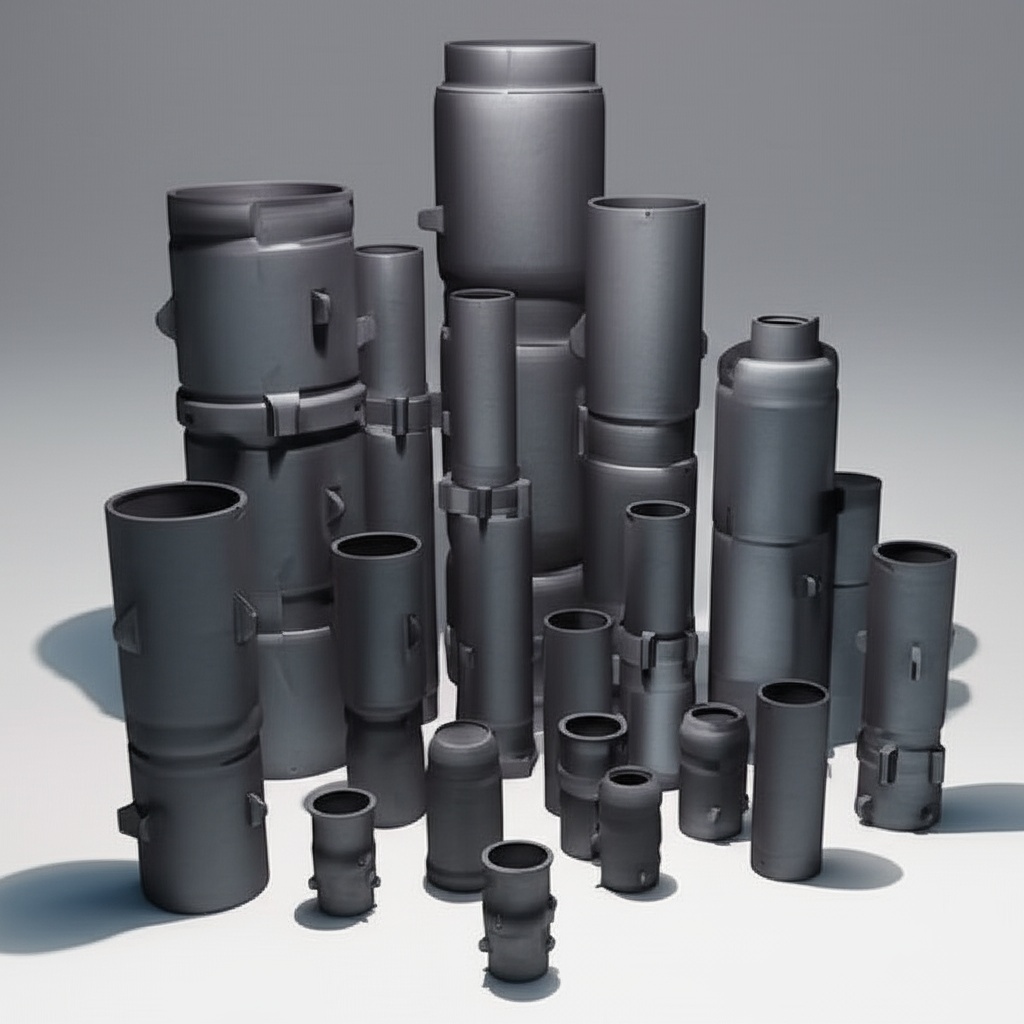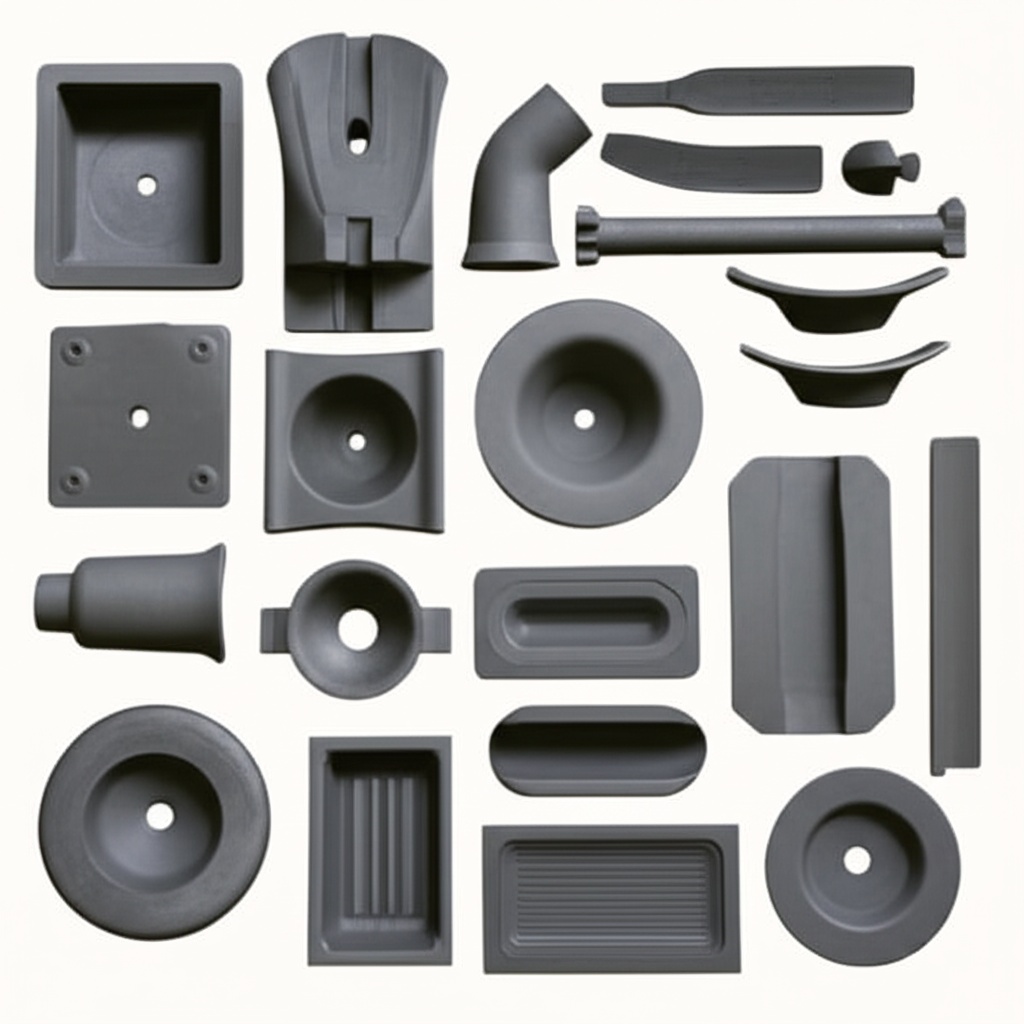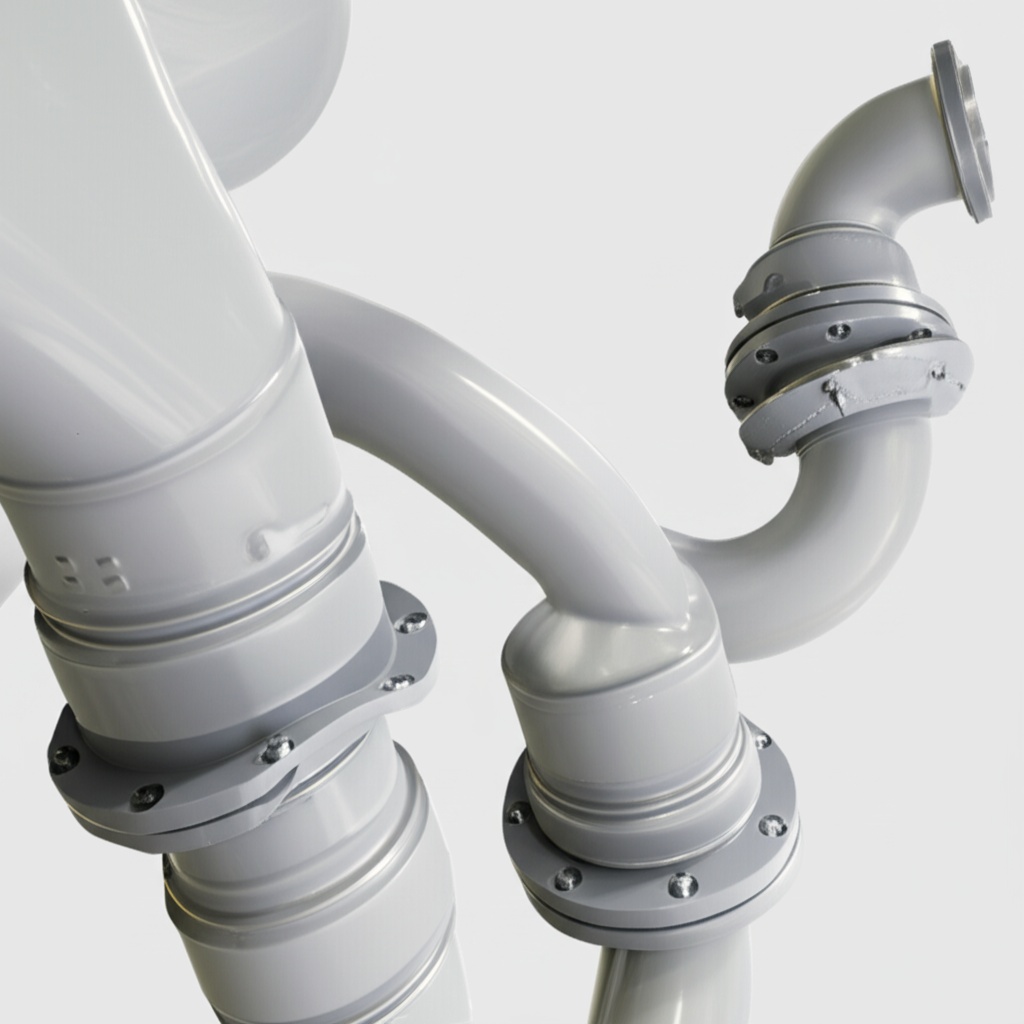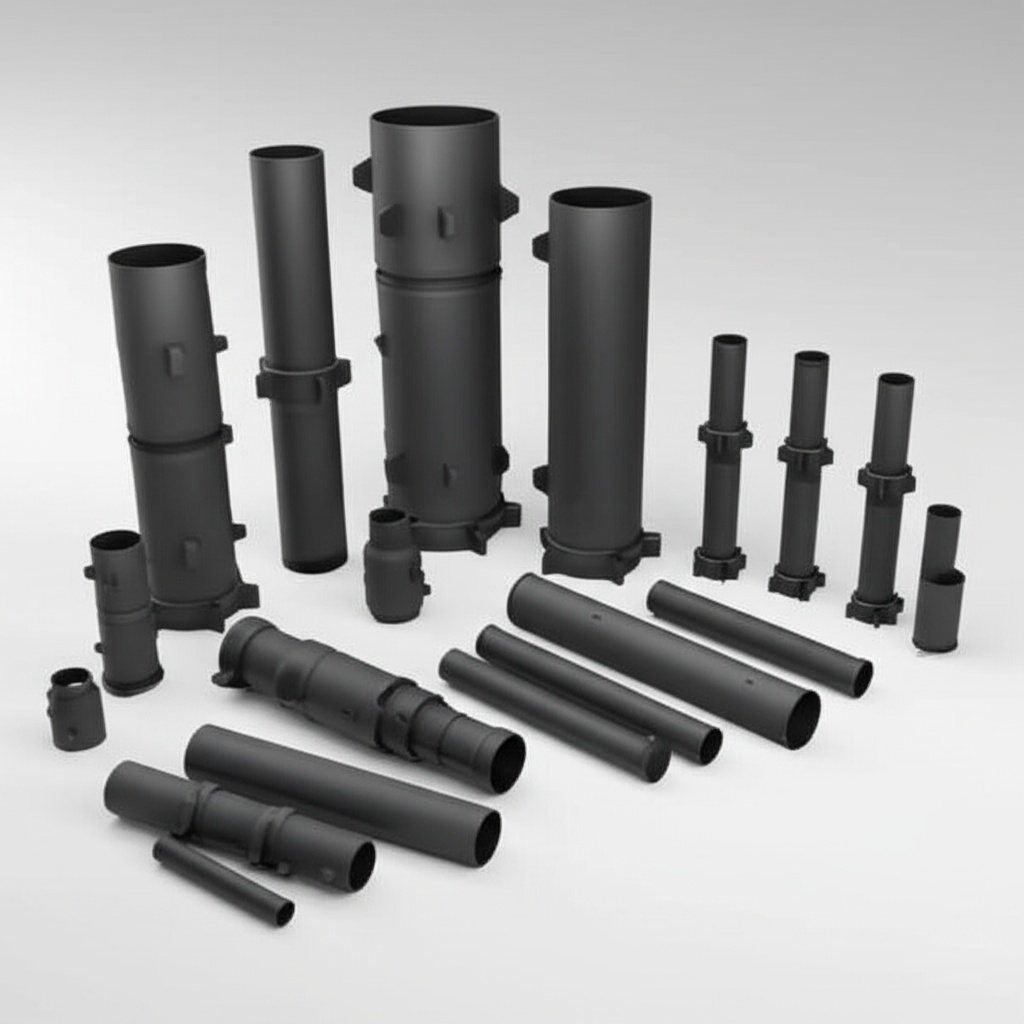Chilean SiC Manufacturers for Your Business Needs

Share
Chilean SiC Manufacturers for Your Business Needs
In today’s rapidly evolving industrial landscape, the demand for materials that can withstand extreme conditions is paramount. Silicon carbide (SiC) stands out as a superior choice for high-performance industrial applications, offering unparalleled thermal, chemical, and mechanical properties. For engineers, procurement managers, and technical buyers in sectors like semiconductors, aerospace, and energy, sourcing reliable custom silicon carbide products is crucial for innovation and operational efficiency.
This blog post delves into the world of custom SiC, focusing on what to look for in silicon carbide manufacturers in Chile and how to identify the best partners for your specific industrial needs. While Chile’s SiC manufacturing landscape is developing, understanding the global benchmark for quality and technological advancement is key. We’ll explore the advantages of custom SiC, key design considerations, and how to choose a supplier that can meet your stringent requirements for technical ceramics.
A Global Leader in SiC Customization
While discussing the global landscape of silicon carbide manufacturing, it’s essential to highlight a significant hub for customizable SiC parts factories: Weifang City in China. This region is home to over 40 silicon carbide production enterprises, collectively accounting for more than 80% of China’s total silicon carbide output.
We, Sicarb Tech, have been at the forefront of this industrial growth since 2015. We’ve been instrumental in introducing and implementing advanced silicon carbide production technology, assisting local enterprises in achieving large-scale production and significant technological advancements. We’ve witnessed and contributed to the emergence and ongoing development of this vital local silicon carbide industry.
Operating under the umbrella of the Chinese Academy of Sciences (Weifang) Innovation Park, an entrepreneurial park that collaborates closely with the National Technology Transfer Center of the Chinese Academy of Sciences, Sicarb Tech benefits from a robust scientific and technological foundation. This national-level innovation and entrepreneurship service platform integrates innovation, entrepreneurship, technology transfer, venture capital, incubation, acceleration, and scientific and technological services.
Leveraging the immense scientific and technological capabilities and talent pool of the Chinese Academy of Sciences , and backed by the Chinese Academy of Sciences National Technology Transfer Center, Sicarb Tech acts as a crucial bridge. We facilitate the integration and collaboration of essential elements in the transfer and commercialization of scientific and technological achievements. This commitment has led to the establishment of a comprehensive service ecosystem spanning the entire technology transfer and transformation process.
Our commitment to quality and supply assurance within China is unwavering. Sicarb Tech boasts a domestic top-tier professional team specializing in the customized production of silicon carbide products. Under our support, over 517 local enterprises have benefited from our technologies. We possess a wide array of technologies, including material science, process engineering, design, and measurement & evaluation technologies, along with an integrated process from raw materials to finished products. This comprehensive capability allows us to meet diverse customization needs. We are uniquely positioned to offer you higher-quality, cost-competitive customized silicon carbide components in China.
Furthermore, we are dedicated to assisting you in establishing your own specialized factory. If you’re looking to build a professional silicon carbide products manufacturing plant in your country, Sicarb Tech can provide you with technology transfer for professional silicon carbide production, along with a full range of services (turnkey project). This includes factory design, procurement of specialized equipment, installation and commissioning, and trial production. This ensures a more effective investment, reliable technology transformation, and a guaranteed input-output ratio, enabling you to own a professional silicon carbide products manufacturing plant.
Understanding Custom Silicon Carbide Products
Custom silicon carbide products are components specifically engineered and manufactured to meet the unique performance requirements of a particular application. Unlike off-the-shelf solutions, custom SiC allows for precise control over material properties, geometry, and surface finish, crucial for optimal performance in demanding environments. This is particularly vital for wholesale buyers, technical procurement professionals, OEMs, and distributors who require specialized solutions.
Main Applications of SiC Across Industries
Silicon carbide’s exceptional properties make it indispensable across a multitude of industries:
- Semiconductors: For wafer processing equipment, furnace components, and epitaxy susceptors, SiC’s thermal stability and purity are critical.
- Automotive: Used in electric vehicle (EV) power electronics, brake discs, and engine components for lightweighting and high-temperature operation.
- Aerospace & Defense: Essential for thermal management systems, lightweight structural components, and missile nose cones due to its high strength-to-weight ratio and resistance to extreme temperatures.
- Power Electronics: Crucial for high-voltage, high-frequency devices, including MOSFETs and diodes, enabling more efficient power conversion.
- Renewable Energy: Employed in solar inverters, wind turbine power converters, and energy storage systems for enhanced efficiency and reliability.
- Metallurgy: Used in furnace linings, crucibles, and heating elements due to its excellent thermal shock resistance and chemical inertness.
- Chemical Processing: Ideal for heat exchangers, pump seals, and valve components in corrosive environments.
- LED Manufacturing: Substrates for high-brightness LEDs due to its thermal conductivity and lattice match.
- Industrial Machinery: Wear parts, bearings, and seals in pumps and other equipment benefit from SiC’s hardness and wear resistance.
- Telecommunications: Components for high-frequency communication systems requiring stable thermal performance.
- Oil & Gas: Downhole tools and abrasion-resistant components for harsh drilling environments.
- Medical Devices: Precision components requiring biocompatibility and high strength.
- Rail Transportation: Brake systems and power electronics for high-speed trains.
- Nuclear Energy: Structural components in reactor cores and fuel cladding due to radiation resistance.
Why Choose Custom Silicon Carbide? Advantages for Your Business
Opting for custom SiC offers significant advantages over standard materials, providing a competitive edge for demanding applications:
- Exceptional Thermal Resistance: SiC maintains its mechanical properties at temperatures exceeding 1,500°C, making it ideal for high-temperature processing equipment and furnace applications.
- Superior Wear Resistance: Its extreme hardness makes SiC highly resistant to abrasion and erosion, extending the lifespan of wear-critical components like seals, bearings, and nozzles.
- Excellent Chemical Inertness: SiC is highly resistant to chemical attack from acids, alkalis, and molten metals, making it suitable for corrosive environments in chemical processing.
- High Thermal Conductivity: This property is crucial for effective heat dissipation in power electronics and thermal management systems.
- Low Thermal Expansion: Minimizes stress and deformation under thermal cycling, ensuring dimensional stability in precision components.
- High Strength and Stiffness: Offers excellent structural integrity even at elevated temperatures, leading to robust and reliable components.
- Customization for Optimal Performance: Tailoring the design and material properties of SiC allows for precise optimization, leading to enhanced performance and efficiency in specific applications. Our customization support for silicon carbide products ensures your exact needs are met.
Recommended SiC Grades and Compositions
The choice of SiC grade depends heavily on the specific application and its requirements. Here’s a brief overview of common types:
| SiC Type | Properties & Advantages | Typical Applications |
|---|---|---|
| Reaction-Bonded SiC (RBSC/SiSiC) | Excellent strength, good thermal shock resistance, fine grain structure, near-net shape capabilities. Contains free silicon. | Kiln furniture, wear parts, nozzles, pump components, heat exchangers. |
| Sintered Alpha SiC (SSiC) | High purity, superior corrosion resistance, high strength and hardness, no free silicon. Can be challenging to machine. | Mechanical seals, bearings, high-temperature furnace components, semiconductor processing. |
| Nitride-Bonded SiC (NBSC) | Good thermal shock resistance, high strength, excellent abrasion resistance. Lower density than SSiC. | Kiln furniture, refractory components, blast furnace components. |
| Chemically Vapor Deposited SiC (CVD SiC) | Ultra-high purity, theoretical density, excellent surface finish, very thin coatings possible. | Semiconductor wafer carriers, optical mirrors, aerospace components. |
Design Considerations for SiC Products
Designing with silicon carbide requires careful attention to its unique properties to ensure manufacturability and optimal performance. Engineers should consider the following:
- Geometry Limits: SiC is a hard and brittle material, making complex geometries challenging and costly to machine. Simple, robust designs are preferred.
- Wall Thickness: Avoid excessively thin walls or sharp edges, as these can be prone to chipping or cracking during manufacturing and operation.
- Stress Points: Minimize stress concentrations by incorporating radii instead of sharp corners, especially in areas subject to thermal or mechanical stress.
- Tolerances: While precision is achievable, excessively tight tolerances can significantly increase manufacturing costs and lead times. Balance precision with functional requirements.
- Material Homogeneity: Ensure uniform material distribution to prevent internal stresses and potential failure points.
- Mounting & Joining: Consider how the SiC component will be mounted or joined to other materials, taking into account differences in thermal expansion.
Tolerance, Surface Finish & Dimensional Accuracy
Achievable tolerances and surface finishes for SiC products depend on the manufacturing method and subsequent finishing processes. For technical buyers, understanding these capabilities is essential:
- Precision Grinding: Capable of achieving tight dimensional tolerances (e.g., ±0.01mm to ±0.05mm, depending on size and complexity).
- Lapping & Polishing: Can produce exceptionally smooth surface finishes (e.g., Ra < 0.1 µm), crucial for sealing applications, optical components, and wear parts.
- Near-Net Shape Forming: Techniques like slip casting or pressing can produce components close to their final dimensions, reducing the need for extensive machining.
- Metrology: Reputable manufacturers utilize advanced metrology equipment to ensure dimensional accuracy and adherence to specifications.
Post-Processing Needs for SiC Components
After initial forming, many SiC components undergo post-processing to enhance their performance, durability, or functionality:
- Grinding: Precision grinding is often used for achieving tight tolerances and specific surface finishes.
- Lapping & Polishing: Essential for applications requiring extremely smooth and flat surfaces, such as mechanical seals or semiconductor components.
- Sealing: For porous SiC grades, impregnation or coating might be necessary to enhance impermeability for certain applications.
- Coating: Applying a protective coating (e.g., CVD SiC, ceramic coatings) can further improve chemical resistance, wear resistance, or alter surface properties.
- Drilling & Machining: While challenging, diamond tooling can be used for secondary machining operations for specific features.
Common Challenges and How to Overcome Them
While SiC offers numerous benefits, engineers and procurement professionals should be aware of potential challenges:
- Brittleness: SiC is a ceramic and inherently brittle, susceptible to chipping or fracture under impact or tensile stress.
- Mitigation: Design components with generous radii, avoid sharp corners, and ensure proper handling during manufacturing and assembly.
- Machining Complexity: Its extreme hardness makes SiC difficult and costly to machine, requiring specialized diamond tooling and techniques.
- Mitigation: Design for near-net shape manufacturing whenever possible and communicate closely with your supplier on machining capabilities.
- Thermal Shock Sensitivity: While generally good, extreme and rapid temperature changes can still induce thermal shock.
- Mitigation: Design for uniform wall thicknesses and gradual temperature transitions where possible. Consider specific SiC grades with enhanced thermal shock resistance.
- Cost: Custom SiC components can have higher upfront costs compared to traditional materials.
- Mitigation: Focus on the total cost of ownership, considering the extended lifespan, reduced downtime, and enhanced performance that SiC provides.
How to Choose the Right SiC Supplier
Selecting a reliable SiC supplier is paramount for success. Consider these factors when evaluating potential partners, especially when looking for silicon carbide manufacturers in Chile or globally:
- Technical Capabilities: Does the supplier have expertise in various SiC grades (SSiC, RBSC, etc.) and manufacturing processes (sintering, reaction bonding, CVD)? Can they handle complex geometries and tight tolerances?
- Material Options: Do they offer the specific SiC compositions and purities required for your application?
- Quality Control & Certifications: Look for ISO certifications and robust quality management systems. Request material data sheets and performance reports.
- Experience & Track Record: Review their portfolio of past projects and client testimonials. A supplier with a proven track record in your industry is a strong indicator of reliability. You can explore our successful silicon carbide projects here.
- Engineering Support: A good supplier will offer design assistance, material selection guidance, and problem-solving expertise.
- Production Capacity & Lead Time: Ensure they can meet your volume requirements and deliver within your project timelines.
- R&D Capabilities: A supplier actively engaged in research and development can offer innovative solutions and stay ahead of material advancements.
- Communication & Responsiveness: Timely and clear communication is vital for successful collaboration, especially for technical procurement professionals. Contact our team for detailed discussions and inquiries.
Cost Drivers and Lead Time Considerations
The cost and lead time for custom SiC products are influenced by several factors:
- Material Grade: High-purity or specialized SiC grades (e.g., SSiC, CVD SiC) are generally more expensive than standard grades (e.g., RBSC).
- Component Complexity: Intricate designs requiring extensive machining or multiple manufacturing steps will incur higher costs and longer lead times.
- Dimensional Tolerances & Surface Finish: Tighter tolerances and smoother surface finishes demand more precise and time-consuming post-processing, increasing both cost and lead time.
- Volume: Larger production volumes typically benefit from economies of scale, leading to lower per-unit costs. However, initial tooling costs might be higher.
- Raw Material Availability: Fluctuations in the global supply of raw SiC powder can impact pricing and lead times.
- Manufacturing Process: The specific manufacturing route (e.g., pressing, casting, sintering) impacts cost and time.
Frequently Asked Questions (FAQ)
Q1: What are the primary differences between Sintered SiC (SSiC) and Reaction-Bonded SiC (RBSC)?
A1: Sintered SiC (SSiC) is a high-purity, fully dense ceramic with no free silicon, offering superior corrosion resistance and high strength. Reaction-Bonded SiC (RBSC) contains a small percentage of free silicon, allowing for easier near-net shaping and often better thermal shock resistance, but it may have slightly lower corrosion resistance in specific environments due to the free silicon phase.
Q2: Can silicon carbide components be repaired?
A2: Due to SiC’s extreme hardness and chemical inertness, traditional repair methods are often impractical. Small chips or cracks might be addressed with specialized grinding or bonding techniques, but significant damage typically necessitates replacement of the component. Prevention through proper design and handling is key.
Q3: What are the typical lead times for custom SiC product manufacturing?
A3: Lead times vary significantly based on complexity, material availability, and current production schedules. For highly customized or intricate parts, it can range from 8 to 20 weeks or even longer. Simpler components or repeat orders may have shorter lead times. It’s crucial to discuss timelines early with your chosen supplier.
Q4: Is SiC electrically conductive or insulative?
A4: Silicon carbide is a semiconductor material. Its electrical conductivity can be precisely controlled by doping during manufacturing, ranging from highly insulative to electrically conductive. This versatility makes it suitable for a wide range of applications, from high-power electronics to electrical insulators.
Q5: What industries benefit most from custom silicon carbide solutions?
A5: Industries that benefit most include semiconductors (for high-temperature processing), automotive (especially EVs for power electronics), aerospace (for lightweight and high-temperature components), power electronics (for efficient power conversion), and industrial manufacturing (for wear-resistant parts and high-temperature furnaces). Any industry requiring materials with exceptional thermal, chemical, or mechanical properties under extreme conditions can benefit from custom SiC.
Conclusion
The pursuit of advanced materials for demanding industrial applications inevitably leads to custom silicon carbide. Its unparalleled combination of thermal stability, wear resistance, and chemical inertness positions it as a critical material for driving innovation and enhancing performance across a diverse range of sectors, from semiconductor manufacturing to aerospace and renewable energy. For engineers, technical buyers, and procurement managers, understanding the nuances of SiC, from material grades to design considerations, is essential for successful project outcomes.
While exploring silicon carbide manufacturers in Chile, remember to benchmark against global leaders in technological advancement and production capabilities. Companies like Sicarb Tech exemplify the expertise and comprehensive support available, offering not only high-quality, cost-competitive customized silicon carbide components but also the invaluable option of technology transfer for establishing your own manufacturing capabilities. By choosing the right partner, you ensure access to the precise SiC solutions needed to meet the rigorous demands of your industry, contributing to more efficient, durable, and advanced products and processes.

About the Author: Sicarb Tech
We provide clear and reliable insights into silicon carbide materials, component manufacturing, application technologies, and global market trends. Our content reflects industry expertise, practical experience, and a commitment to helping readers understand the evolving SiC landscape.




